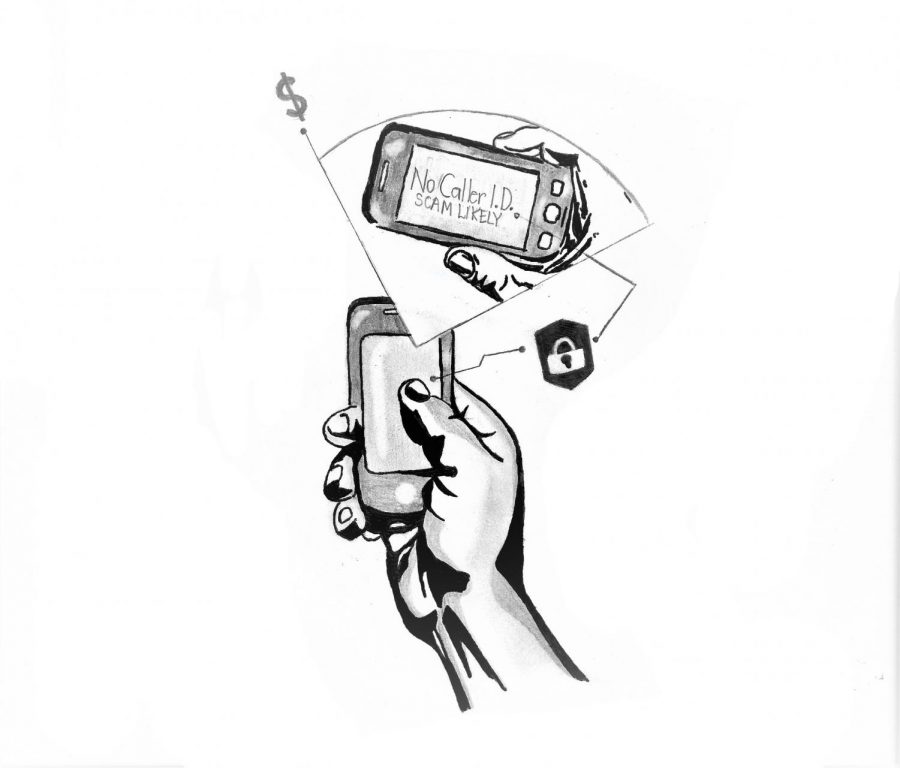Threat by phone hits staff
Victim is informed of false warrant issued for arrest
May 15, 2019
Recently, District employees have received calls on their work phone extensions identifying them by name from an individual claiming to be Lt Foley, from the Contra Costa County Sheriff’s office.
The individual claims the person has failed to appear in court and that a warrant has been issued. Then, the caller attempts to collect personal information and requests a call back from the employee’s cell phone.
Ultimately, the caller would then ask for money and to meet up somewhere, saying the money was to pay the bail bonds.
Faculty and staff have received an email from District Chief of Police Ed Carney letting them know that the phone call is a scam.
Carney said the email was to inform members of the attempted scam.
“This particular type of scam is fairly common wherein a caller impersonates an official to conduct fraudulent acts. I felt it prudent to send out a reminder to all employees to be cautious of possible scams coming into college lines.”
In the email, employees were notified that, although there is in fact a Lt. Foley, he does not work for the courts and would never contact any faculty or staff member for any reason.
The e-mail also instructed employees not to give out any vital information.
In this increasingly dangerous electronically driven economy, technology helps to weed out scammers.
Most phone service providers usually protect customers from predators by having “scam likely” appear on the caller identification if an unknown or suspicious number calls.
However, technology can also bring new forms of scams that we are susceptible to.
The internet brings all sorts of new scams to the table ranging from the “you just won a million dollars” emails, to pop up ads offering small-amount gift cards.
The one common thread with all these sorts of scams is they all require personal financial information.
Sometimes, even applying to get financial aid makes someone susceptible to any number of scamming opportunities.
Biology major Klinsman Ajib said he was once targeted by scammers when applying for grants “I had an offer for a grant and it just seemed kind of weird because they wanted my social security number and other information, but I was not told how much the grant was for so that was a red flag.”
According to FBI statistics, identity theft from scams through email and telephone add up to over $742 million for the public.
Scams come in all forms.
Sometimes consumers purchasing from a not so well-known website think they’re getting a good deal, only to find out later what they received is not the product at all.
Administration of justice major Jordon Evans said his grandfather was once scammed online when buying a television. Neither of them expected something like that to happen.
“There was no television in the box that came. But there was Styrofoam and everything like a real television was going to be in there. There wasn’t anything in there except a bar of soap wrapped in plastic where the remote should be. I couldn’t believe it. I never expected anything like this to happen from ordering online.”
His grandfather was never able to get the money for the television back, but it was a learning experience for everyone.
Older people and those whose native language is not English are more susceptible to being targeted by phone scammers. Medical assistant major Jaswinder Kaur said the responsibility lies in our current generation to inform the older generation about these possible scams.
“It is our responsibility because we are out in the world more than them and know more about these things. We need to let them know that these kinds of things can happen.”
This generation is much more aware of the scams that have been going around for years but the new forms of scamming will also bring forth a new set of challenges.
Recent phone scam attempts in the district are a reminder to be mindful who we share our information with and to only disclose private information with entities and companies that are trusted.



